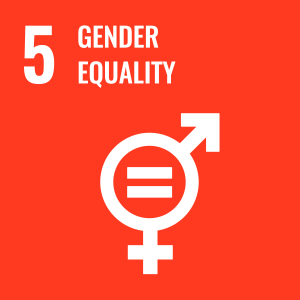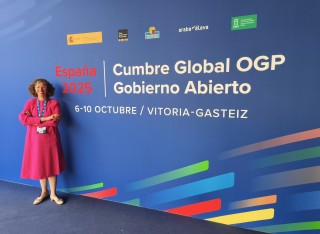
Dr Carla Bonina
About
Biography
Carla Bonina is a globally recognized expert at the intersection of technology, entrepreneurship, and policy, focused on driving impactful change for sustainable development. As a social scientist and author, she leverages her research to empower leaders in the tech industry and public sector to harness digital innovation, platforms, and responsible AI for transformative outcomes.
Her work has informed international organizations, governments, and donors—including the World Bank, the OECD, the IDRC, Avinas Americas and others—on strategic issues such as digital transformation, open data, and the sustainability of the digital economy. Renowned for her expertise in Latin America, Carla is a thought leader in using digital technology for social impact.
Carla’s research, funded by prestigious bodies like the EU’s Horizon 2020, ESRC, and EPSRC, translates cutting-edge insights into actionable solutions. She has been recognized with numerous accolades, including Mid-Career Researcher of the Year at Surrey Business School (2021) and the Impact Award (2020) for her outstanding contributions to digital government transformation in Latin America. In 2025, she was named one of the 100 Brilliant Women in AI Ethics for ensuring that benefits from people-centred AI are distributed equitably.
As a founding member of the Surrey Center of Digital Economy, Fellow at the Surrey Institute for People Centred AI and Principal Researcher at the Latin American Open Data Initiative (ILDA), Carla is at the forefront of driving responsible AI adoption and digital innovation. She also contributes to the Center for Social Innovation Management, the Surrey Law and Technology Hub, and the global Sandbox network of young entrepreneurs.
Carla holds a PhD in Management from the London School of Economics, an MSc in Public Administration and Public Policy from CIDE, and a BA in Economics from the University of Buenos Aires. Passionate about social entrepreneurship, Carla thrives on turning research into insights that enable impactful change for a more sustainable digital future.
Areas of specialism
University roles and responsibilities
- Open Research Champion - Surrey Business School
My qualifications

News
In the media
ResearchResearch interests
My research agenda revolves around asking the ‘what’, ‘how’ and ‘why’ questions of digital innovation in private and public enterprises and its effects at societal level. I work mainly in the following related streams:
Digital platforms, digital social innovation and international development
In this stream of work I investigate what digital platforms and its underlying use of data mean for international development, and how to best untap their potential. I build on extant work on the theoretical foundations of digital platforms, and link them to sustainable development and global south contexts. An example of this work appeared in the ISJ article in 2021 that I co-authored with my colleagues Kari Koskinen (Aalto), Ben Eaton (CBS) and Annabelle Gawer (SBS). I am currently working on empirical research in Latin America.
Politics and Digital Transformation in Government
This programme of research explores how digital innovation contributes to the enactment of public values in government on one hand, and what role ideologies play in the design and implementation of digital government initiatives. It applies social theory in information systems and publicness theory to study the way governments generate value within their contexts. A good example of my work is the article I co-authored with Prof Avgerou from the LSE on ideologies and digital government (ISJ). Drawing on a longitudinal case in Mexico, we show that rather than being solely about digital technology, politics shape digital government transformation in profound ways. Practically, this implies that winning the political battle and building political support is paramount to sustain a digital government transformation.
AI policy
This research stream examines the governance of AI through the lens of policy frameworks, exploring their ethical, social, and economic implications across jurisdictions. I investigate how the "Brussels Effect"—the European Union's capacity to set global standards—shapes the adoption of responsible AI practices worldwide, influencing issues such as bias, discrimination, and accountability in AI-powered systems.
Ethical implications of digital platforms and AI
Other areas I'm working include reappraising notions of value and ethics in the digital economy. This include discrimination and bias in AI-powered algorithms, emerging business models in digital social innovation, AI-powered justice systems and critical discourse analysis of facial recognition software. I encourage PhD student applications in these areas.
Research projects
The State of Open Data is a new project that seeks to review the development of the open data movement over the past 10 years. The project is funded by the International Development Research Centre (IDRC) under the Open Data for Development (OD4D) Programme.
Coleading the Open Data and Private sector chapter.
Development Implications of Digital Economies (DIODE) is a strategic research network funded by the UK’s Economic and Social Research Council. It researches the digital economy and its role in developing countries.
Role: Co-PI, leading group on digital platforms and intermational development.
An EU-funded, three year project, The Audio Commons Initiative aims at bringing Creative Commons audio content to the creative industries. It aims to promote the use of open audio content and at developing technologies with which to support an envisioned ecosystem of content repositories, production tools and users.
Role: Co-PI
Indicators of esteem
Dr Bonina’s work “has had immense value in how we construct a more responsive, transparent and innovative government with open data. Her work has not only been invaluable to our city but to many others in the region who take the open data policy of Buenos Aires as an exemplar to follow.” Testimonial by the Undersecretary of Strategic Management and Institutional Quality, General Secretariat, Government of the City of Buenos Aires.
Research interests
My research agenda revolves around asking the ‘what’, ‘how’ and ‘why’ questions of digital innovation in private and public enterprises and its effects at societal level. I work mainly in the following related streams:
Digital platforms, digital social innovation and international development
In this stream of work I investigate what digital platforms and its underlying use of data mean for international development, and how to best untap their potential. I build on extant work on the theoretical foundations of digital platforms, and link them to sustainable development and global south contexts. An example of this work appeared in the ISJ article in 2021 that I co-authored with my colleagues Kari Koskinen (Aalto), Ben Eaton (CBS) and Annabelle Gawer (SBS). I am currently working on empirical research in Latin America.
Politics and Digital Transformation in Government
This programme of research explores how digital innovation contributes to the enactment of public values in government on one hand, and what role ideologies play in the design and implementation of digital government initiatives. It applies social theory in information systems and publicness theory to study the way governments generate value within their contexts. A good example of my work is the article I co-authored with Prof Avgerou from the LSE on ideologies and digital government (ISJ). Drawing on a longitudinal case in Mexico, we show that rather than being solely about digital technology, politics shape digital government transformation in profound ways. Practically, this implies that winning the political battle and building political support is paramount to sustain a digital government transformation.
AI policy
This research stream examines the governance of AI through the lens of policy frameworks, exploring their ethical, social, and economic implications across jurisdictions. I investigate how the "Brussels Effect"—the European Union's capacity to set global standards—shapes the adoption of responsible AI practices worldwide, influencing issues such as bias, discrimination, and accountability in AI-powered systems.
Ethical implications of digital platforms and AI
Other areas I'm working include reappraising notions of value and ethics in the digital economy. This include discrimination and bias in AI-powered algorithms, emerging business models in digital social innovation, AI-powered justice systems and critical discourse analysis of facial recognition software. I encourage PhD student applications in these areas.
Research projects
The State of Open Data is a new project that seeks to review the development of the open data movement over the past 10 years. The project is funded by the International Development Research Centre (IDRC) under the Open Data for Development (OD4D) Programme.
Coleading the Open Data and Private sector chapter.
Development Implications of Digital Economies (DIODE) is a strategic research network funded by the UK’s Economic and Social Research Council. It researches the digital economy and its role in developing countries.
Role: Co-PI, leading group on digital platforms and intermational development.
An EU-funded, three year project, The Audio Commons Initiative aims at bringing Creative Commons audio content to the creative industries. It aims to promote the use of open audio content and at developing technologies with which to support an envisioned ecosystem of content repositories, production tools and users.
Role: Co-PI
Indicators of esteem
Dr Bonina’s work “has had immense value in how we construct a more responsive, transparent and innovative government with open data. Her work has not only been invaluable to our city but to many others in the region who take the open data policy of Buenos Aires as an exemplar to follow.” Testimonial by the Undersecretary of Strategic Management and Institutional Quality, General Secretariat, Government of the City of Buenos Aires.
Supervision
Postgraduate research supervision
Sustainable development goals
My research interests are related to the following:







Publications
Highlights
"Digital platforms for development: Foundations and research agenda" awarded highly cited paper in 2021-2022 & 2022-2023.
Artificial Intelligence (AI) is widely regarded as a transformative technology with the potential to advance prosperity across fields such as healthcare, education, and climate change mitigation. By automating tasks, generating predictive insights, and supporting decision-making, AI offers unparalleled opportunities for economic and social progress. However, the rise of AI also presents profound risks, including large-scale social harms, ethical dilemmas, and the potential erosion of human control over autonomous systems (Bengio et al., 2023). These challenges are particularly acute in the Global South, where issues of political, social, and economic exclusion are magnified (Arun, 2020; Smith & Neupane, 2018). Research further highlight how the growing power of a handful of digital platforms shapes global geopolitics and economics, amplifying risks such as surveillance, behavioural manipulation, and societal inequities (Ezrachi & Stucke, 2022; Gawer & Bonina, 2024; Ithurbide, 2023; Lehdonvirta, 2024; Bonina et al., 2021; Ada Lovelace Institute, 2022). Addressing these risks requires regionally contextualized strategies that prioritize “inclusive solidarity”—a collaboration across diverse actors to mitigate harm and equitably share the benefits of AI.Latin America’s AI governance has evolved in distinct waves (Aguerre, 2024), from initial national AI strategies emphasizing vision and global positioning, to recent shifts toward risk-based regulations influenced by the European AI Act, and most recently, to fostering regional cooperation mechanisms such as the Declaration of Cartagena de Indias (2024). These waves reflect a growing recognition that inclusive governance requires not only adapting global frameworks to local contexts but also strengthening collaboration among governments, firms, academia, and civil society. Understanding these dynamics is essential for addressing the unique challenges of the region while ensuring that AI governance frameworks foster equitable and sustainable innovation.This paper examines the current landscape of AI regulation in Latin America, with a focus on understanding its main challenges and ways forward to address the regulatory divide and strengthen regional cooperation. Covering developments over the last five years, the study employs a mixed-methods approach, combining novel data sources—including the Global Data Barometer, the Index for Responsible AI, and UNESCO’s AI readiness assessments—with fieldwork conducted in Brazil, Chile, Colombia, and Uruguay. These empirical findings are enriched by insights from policy documents indexed in Overton and interviews with key stakeholders across the region.Our analysis contributes to the growing discourse on responsible AI by elucidating pathways for Latin American countries to engage with global AI governance. The research highlights opportunities for the region to leverage the Brussels Effect (Bradford, 2020, 2023; Ylönen, 2024) in ways that shift power over data and AI systems towards societal benefit. Moreover, it underscores the necessity of fostering cross-national partnerships and collective regulatory frameworks that amplify Latin America’s voice in shaping global standards. The study offers actionable recommendations for bridging regulatory divides and promoting equitable and sustainable AI practices across the region.A distinctive approach for this project lies on grasping the significance of AI regulation in Latin America. The project main contribution lies in recognising the imperative need to deploy Responsible AI globally. By understanding the Brussels Effect and its implications, it aims to delineate pathways for Latin America to actively work towards inclusive solidarities, by participating in shaping global AI standards, to understands its risks and actively contribute to its safety for and within the region. The research will shed light on how regional collaboration and partnerships can be fostered to bridge the regulatory divide as well as to inform policy.
The U.K.’s digital trade ecosystem at the customs border is fragmented. Without the orchestration of change in policy, process, and technology, we risk duplicating efforts, increasing border friction, and falling behind our peers in digital trade readiness. We propose a collaborative governance framework for orchestrating the evolution of current platforms, data, and institutional policies, thereby accelerating progress toward a more resilient, efficient, and trusted digital border.
In this panel we explore the challenges of designing and implementing AI projects for the public good in Latin America. We introduce a set of cases emerging from Brazil, Chile, Uruguay, Paraguay and Mexico, in different areas, and provide evidence of the challenges in terms of developing, co-producing and implementing machine learning projects. Then we explore what kind of capacities are needed to manage projects for the public good, particularly in the public sector, and reflect on the challenges for democracy ahead.Format of the panel. The panelist will share concrete research projects and lessons learned from opportunities and challenges of diverse aspects. implementing machine learning for the public good. The second part will follow with a round table where panelists will discuss the present and future of the theme with questions from the audience. The objective of the session is to develop a constructive debate around lessons learned in Latin America that can be applicable to other developing regions in the world as well as to imagine prospects for the future. Summary of panelist expertise and discussion (in alphabetical order) Carla Bonina (panel chair) is Senior Lecturer (Associate Professor) in Entrepreneurship and Innovation, member of the Centre of Digital Economy at the University of Surrey Business School, and Principal Researcher at the Latin American Initiative of Open data (ILDA). A Fellow of the newly created Surrey Institute for People-Centred AI, Carla has 15 years of experience conducting research on digital innovation, entrepreneurship, and policy for sustainable development. She provides strategic advice on digital transformation and social innovation to governments, international organizations, and start‐ups, including the OECD, the World Bank, and Avina Americas among others. She is considered a Latin American expert. Carla holds a PhD in Management from the London School of Economics and Political Science (LSE). Carla will moderate the panel. Fabrizio Scrollini is the executive director of the Open Data Latin American Initiative (ILDA), and member of the Open Data Network for Development (OD4D). He co-founded Abrelatam and the Open Data Regional Conference for Latin America and the Caribbean and is one the Lead Stewards of the International Charter of Open Data. He worked with governments, regulators and civil society at international and regional level on transparency, access to public information, open data projects and public sector reform. He holds a PhD in Government from the London School of Economics and Political Science (LSE). Fabrizio will co- present the lessons learned from the project Empatia (https://www.empatia.la/en/home/), an Artificial Intelligence for Development project focusing on how to co-produce machine learning tools for the public sector. Renata Avila is an international Human Rights lawyer and digital rights advocate. Throughout her career, Renata has successfully built a global network of networks advancing a decolonial, peoples-centric approach to open technologies and knowledge, as tools to advance rights and create stronger communities. Renata will present the work OKFN is leading with UNESCO on digital skills to design and implement projects in Latin America.
Abstract Digital technologies have a recognised potential to build more efficient, credible, and innovative public institutions in Latin America. Despite progress, digital transformation in Latin American governments remains limited. In this work, we explore a peculiar yet largely understudied opportunity in the region: pursuing digital government transformation as a collaborative process between the government and civil society organisations. To do so, we draw from information systems research on digital government and platforms for development, complemented with governance theory from political science and conduct an interpretive in‐depth case study of an urban reporting platform in Montevideo called ‘Por Mi Barrio’. The study reveals three mutually reinforced orders of governance in the trajectory of the project and explain how the collaboration unfolded over time: (i) a technical decision to use open platform architectures; (ii) the negotiation of formal and informal rules to make the project thrive and (iii) a shared, long‐term ideology around the value of open technologies and technical sovereignty grounded in years of political history. Using a contextual explanation approach, our study helps to improve our understanding on the governance of collaborative digital government platforms in Latin America, with specific contributions to practice.
In the evolving landscape of data-driven development, understanding the impact of research on national and international policy is paramount. This paper delves into the challenging realm of Monitoring, Evaluation, and Learning (MEL) in research for development, particularly focusing on an underexplored area of data justice: tracking policy influence from scientific research. This paper combines an extensive literature review with 10 in-depth expert interviews that systematize the importance of tracking research influence, main methodologies used, and the current characteristics of the data ecosystem in MEL for development. It then uses a computational data science approach to assess the influence of research on open government policies in Latin America. Specifically, it explores a searchable index of millions of policy documents (Overton), combined with contextual information, to assess possible metrics of research influence on policy. While unveiling the potential of data and tools based on large language models (LLMs) in the MEL domain, the paper uncovers a stark reality: the data is incomplete, and its advantages are skewed towards the Global North. The coverage and representation in the Global South are significantly lacking, with idiosyncratic differences influencing how research is used in policy decisions. This research contributes to the broader discourse on fairness and justice in data and computational systems. It emphasizes the need for nuanced approaches in evaluating research impact on policy decisions, advocating for a more equitable data landscape in the pursuit of global development goals.
The UNESCO Recommendations for Open Science define it as an inclusive framework that integrates movements and practices aimed at making multilingual scientific knowledge openly accessible, reusable, and collaborative for the benefit of science and society. This approach emphasizes transparency, collaboration, rigor, and accessibility, principles that align closely with qualitative research methodologies. In the health and social sciences, qualitative methods explore the meanings, experiences, and perspectives of individuals and groups. Open qualitative research encompasses diverse practices, including transparency in design and analysis, enabling meaningful scrutiny, and fostering collaboration through stakeholder engagement and co-production. The application of openness in qualitative research varies based on the context and specific project needs.
Castellano Existe un creciente entusiasmo por los posibles beneficios económicos y sociales de la utilización de datos abiertos en las ciudades de América Latina. Este reporte analiza el desarrollo de tres proyectos de datos abiertos de tres ciudades de América Latina: Buenos Aires, Ciudad de México y Montevideo, ciudades con estructuras innovadoras, que han logrado cierto nivel de implementación de sus iniciativas de datos abiertos. En particular, el reporte estudia de qué manera diferentes actores interactúan para generar valor con datos abiertos, es decir, los procesos de cocreación con datos abiertos. Esta investigación reporta hallazgos basados en evidencia, que fueron recopilados a lo largo de seis meses. Los resultados revelan que en los tres casos una combinación de liderazgo, recursos y alianzas claves entre gobiernos, asociaciones civiles, grupos y ciudadanos, son los principales mecanismos para la cocreación con datos abiertos en las ciudades. A la vez, los casos muestran diferencias en los niveles de implementación, colaboración y usos de los datos abiertos, con consecuencias para su desarrollo futuro. En vistas de los aportes, el informe ofrece una serie de retos y recomendaciones para el desarrollo de proyectos de datos abiertos en ciudades de la región. English There is increasing excitement about the potential economic and social benefits of using newly released public and private data in open format. In this piece, I study how open data projects unfold in three cities in Latin America, a region that has been moving comparatively quickly in embracing open data initiatives. To do so, this paper report findings from an exploratory, in-depth study of three cities of Latin America that have pioneered and already established open data projects: Buenos Aires, Mexico City, and Montevideo. The three cases have been selected because they either entail innovative structures, or have achieved certain maturity levels in their deployment or uses of open data. The sources of evidence, in turn, have been collected and analysed over 6 month. The findings reveal that in all three, a combination of leadership, resources and key partnerships between governments, civil associations, groups and citizens, provide the sources for co-creating practices in the cities. The cases show differences in levels of development and uses of open data, with consequences on their future development. In light of the findings, the report offers a series of critical challenges and recommendations for developing open data projects in cities.
This paper offers an overview of the emerging open data landscape and its value creation in the economy and society. It analyses extant literature in three research domains: open data, business models, and value theory in the social sciences. Based on the review, it discusses challenges, potential trade-offs and policy implications of open data in business and social applications. In doing so, the paper builds a conceptual base that can guide future work on the area
This chapter is focused on developing a basic understanding of data and how it permeates different aspects of society. This involves knowledge of how it is structured, the politics behind this and implications regarding transparency. We understand data as a set of values of qualitative or quantitative variables about one or more persons or objects. It is transformed into information when data is created, extracted, elaborated and used with pre-established objectives. The information system, made up of data of the same or different form (the data set is defined as a "dataset"), is transformed into knowledge when it is interpreted through tools, applications, methods, indicators, etc. The first unit in this module presents an overview of data and introduces the concepts of open data, showcasing different techno-political elements of its structure including principles and standards for publication. The second unit presents an introduction to open science and open science data, and furthermore, principles for scientific data management. Finally, the third unit showcases the importance of fostering innovation with open data to promote the creation of sustainable business models.
About INDELA and the Project Objectives: INDELA is an initiative formed by a collaboration between Fundación Avina, Luminate and Open Society Foundations (OSF), with the support of the Ford Foundation and the International Development Research Centre (IDRC), which funds and supports organizations working to promote digital rights in Latin America. After closing its first two cycles of support, the INDELA Fund embarked on a process of reflection about its work and its role in the region. The objectives of this study focused on: i ) analyzing, organizing, and evaluating the role of INDELA in the achievements, challenges and main lessons learned from a selection of projects supported during 2019 and 2020; ii) providing learnings and recommendations for the operation of INDELA and for its partners, the organizations supported and the digital rights ecosystem in the region
Digital platforms hold a central position in today's world economy and are said to offer a great potential for the economies and societies in the global South. Yet, to date, the scholarly literature on digital platforms has largely concentrated on business while their developmental implications remain understudied. In part, this is because digital platforms are a challenging research object due to their lack of conceptual definition, their spread across different regions and industries, and their intertwined nature with institutions, actors and digital technologies. The purpose of this paper is to contribute to the ongoing debate in information systems and ICT4D research to understand what digital platforms mean for development. To do so, we first define what digital platforms are and differentiate between transaction and innovation platforms, and explain their key characteristics in terms of purpose, research foundations, material properties and business models. We add the socio-technical context digital platforms operate and the linkages to developmental outcomes. We then conduct an extensive review to explore what current areas, developmental goals, tensions and issues emerge in the literature on platforms and development and identify relevant gaps in our knowledge. Based on our findings, we elaborate on six research questions to advance the studies on digital platforms for development as follows: on indigenous innovation, digital platforms and institutions, on exacerbation of inequalities, on alternative forms of value, on the dark side of platforms and on the applicability of the platform typology for development. 2
This paper introduces the concept of modularity in financial services, discusses how new value chains are created and addresses emerging opportunities for innovative business models in the digital economy. We argue that innovation occurred in the banking sector despite the lagging adoption of new operational practices but due to technology drive for new ways to provide services. Banking innovation is commonly a matter of case facilitation vs. lock-in, in which the systemic effects of balancing delay vs. fast progress requires business model choices. In the banking sector, where there is little power stability among stakeholders, asymmetrical periods of dynamism are triggered by the modernization of the systems [13]. The main argument of this paper is that we can use models of modularity and network integration to improve our understanding of sustainable emerging banking practices. This is fundamental when establishing the potential contribution of this sector to digital economy models. © 2014 IEEE.
We develop a perspective of IT innovation in the public sector as a process that involves three complementary areas of ideology and concomitant dispute. First, the widespread view of e-government as a transformative force that leads to major improvements of public sector functions for the benefit of society at large. Second, ideologies concerning the substantive policies enacted by public sector organizations. Third, ideology regarding public sector modernization. Our research examines how the objectives of IT projects and their actual effects in government are influenced by such ideologies and contestations that surround them. We develop our theoretical contribution with a critical discourse analysis that traces the ideological underpinnings of two consecutive IT projects for the administration of international trade in Mexico. This analysis associates the objectives of the IT projects with the emergence and ensuing contestation in Mexican politics of two ideologies: the first ideology concerns free international trade as imperative for economic development; the second ideology concerns public sector modernization which sought to overcome historically formed dysfunctionalities of public administration bureaucracies by adopting management practices from the private sector. The analysis then identifies the effects of the ideologically shaped IT projects on two key values of public administration, efficiency and legality. The insights of this research on the role of ideology in IT innovation complement organizational perspectives of e-government; socio-cognitive perspectives that focus on ideas and meaning, such as technology frames and organizing visions; and perspectives that focus on politics in IT innovation.
Digital social innovations (DSI) are new products, services or processes either embodied or enabled by digital technology, whose goal is to stimulate social change. Like social ventures, DSIs are hybrid organizations (Battilana and Lee, 2014; Bonina et al., 2020). Hybrids operate in severe institutional voids environments (Mair, Marti and Ventresca, 2012; Austin et al., 2006) and need to respond to a variety of different stakeholders, making them highly risky. Because DSI rely on ground-breaking technologies, they are perceived as even riskier. Although high risk demands entails greater returns, we still lack an understanding of what risk is in a hybrid context and how it unfolds. This paper seeks to answer the following research questions: What are the risks of hybrids developing DSIs?
Civil society and governments around the world have recognized the potential developmental benefits that data released in open format could bring to the Global South. This open data, released in digital format, publicly available for anyone to use—promise to contribute to global development goals, such as economic growth, job creation, social and economic inclusion, and access to public services such as healthcare. Although emergent, there is growing evidence that in the right circumstances, open data could contribute to these goals (see Verhulst and Young 2016, as well as chapter 10 in this volume). Despite the potential, there is also a body of literature suggesting that most open data initiatives are not having the desired impact, particularly in the Global South, for a variety of reasons. These include poor-quality or incomplete data, data in hard-to-use formats, and a mismatch between the data that are published and the data that are actually needed (World Wide Web Foundation 2017). Thus, it is becoming paramount to understand how to improve the connection between making the data available, sharing it, and fostering the actual uptake of open data to solve developmental problems. Recent evidence has shown that the governance relationship is an important factor in this equation. For example, in a review of twenty-three digital monitoring platforms of public services, Peixoto and Fox (2016) show that the existence of institutional arrangements increases the use and responsiveness of these initiatives. While valuable, these studies show broad patterns of the overall picture. In this chapter, we aim to delve into these patterns in detail.
Data access, use and availability has become an essential feature of the digital economy that bears anenormous potential to contribute to sustainable development. The open data agenda and its implementation in theGlobal South, although with unequal pace and diverse strategies, have made progress but have also recentlystagnated. Despite the expectation to contribute to development goals, such as economic growth, social inclusion, and access to public services such as healthcare, after a decade of open data initiatives few of these benefits have been materialized. Part of the problem, the evidence suggests, is related to governance aspects. This is our mainmotivation to put this panel together. The aim is to understand key lessons learned, as well as to debate how to move to a brighter future as well as to develop better measurement tools. In this panel, we focus on complementary perspectives on the governance of open data. First, we are interested in those policies that are in place to enable a trustworthy, valuable and healthy open data ecosystem (Cretu and Scrollini). Questions we would ask the panellist to cover include: what countries have the foundations in place for responsible and effective data collection and use? How do open data policies operate among other data policy frameworks? What can we learn from recent survey exercises such as the Latin American Edition of the Open Data Barometer? A second governance perspective comes from a platform perspective (Bonina). Here, we will discuss how diverse tools and rules can be deployed from an open data platform owner, to cultivate an ecosystem of data publishers, data re-users and innovators in the global South. A third governance angle (Serale) relates to managing key stakeholders, their responsibilities, practices, and collaborations in the administration of open data. This third perspective will cover diverse tools to help organizations to work around data access initiatives, from lessons learned at a global scale. Finally, we will aim to reflect on emerging methodologies to capture the complexity of the governance dimensions in data ecosystems at a national and global level.
Digital platforms contribute significantly to sustainable development yet pose specific risks to developing countries. Using a World Bank global database of antitrust actions complemented by secondary data, we empirically analyze developing countries' regulatory responses to threats to competition and innovation associated with digital platforms. We ask: (1) Which types of anticompetitive agreements and abuse of dominance practices were associated with various platform types? (2) For mergers, which salient characteristics of the acquiring platform drove the antitrust investigations, and what actions were taken by the enforcement authorities? We find that two types of platforms (transaction and hybrid) give rise to distinct competitive concerns and elicit different responses from enforcement authorities. We then discuss our findings in the broader context of policy responses from developing countries to challenges related to digital platforms. We offer recommendations for policymakers and suggest avenues for future research. 2
New information and communication technologies (ICT) promise an era of remarkable changes for society. In this paper, I propose to reflect on the processes underlying a national ICT initiative in Mexico aimed at improving foreign trade regulation – the Single Window for Foreign Trade. The case offers an example of the complexities of building ICT critical infrastructures in a given context. Using a narrative approach, I address the challenges and potential strategic lessons that can be learned from the case. Overall, the study offers implications that can serve as a point for comparison to similar projects.
La protección de datos personales en el ámbito online es un eje central del trabajo de la comunidad de derechos digitales en Latinoamérica. Los datos personales son información de una persona, que la identifican o la hacenidentificable. En el ámbito digital, una gran cantidad de datos personales pueden ser recopilados, y esto se puede prestar a abusos, especialmente entre poblaciones más vulnerables, como minorías, periodistas o activistas.INDELA buscó apoyar organizaciones latinoamericanas trabajando en la protección de datos personales enfocadas en promover la regulación --ya sea a través de la adopción de legislación o introducción demejoras-- y velar por la aplicación de estándares de protección de datos a nivel local o regional. Este caso de estudio, se centra en la experiencia de dos organizaciones apoyadas por INDELA en 2019 y 2020.INDELA es la Iniciativa por los derechos digitales en Latinoamérica, conformada por la Fundación Avina, Luminate y Open Society Foundations (OSF), con el apoyo de Fundación Ford y el Centro Internacional de Investigaciones para el Desarrollo (IDRC).
Among the most highly capitalised and internationally expanding digital platform firms, most come from the United States while a small number hail come from China (Cusumano et al., 2019; Kenney & Zysman, 2016). All have begun ambitious programmes of internationalisation, seeking to find their “next billion” users in the global South (Pisa & Polcari, 2019). Yet new developments in the regulatory environment in Europe and other countries from the global North are likely to have profound impact on such platforms’ internalization strategies. Emanating from Europe, new regulations such as the Digital Services Act (DSA) and the Digital Markets Act (DMA) are likely to have effects (both intended and not intended) on competition and innovation, but also on development outcomes. For example, the DMA aims to curb power abuses by so-called “gatekeeper” platforms by controlling and limiting some of their activities. As with GDPR before, these new rules are likely to have implications reverberating globally. The changing regulatory environment for digital platforms is therefore an international phenomenon which has implications on the globalization of digital platforms as well as the impact of platforms for development. Most of the extant research on digital platforms in strategy and IS had hitherto primarily focused on strategy issues mostly pertinent to the global North, broadly ignoring issues specific to the global South. Research has only begun to tackle the question of the specific impact of digital platforms in the global South (Guillén, 2021). For example, Bonina, Koskinen, Eaton, and Gawer (2021) have offered a framework delving into the specifics of how digital platforms can trigger positive effects for development as well as identifying the trade-offs involved.But although a relatively new research topic, the internationalization of digital platforms already shows early signs of fueling a hotly polarised debate. While some extoll the virtues of big tech digital platforms entry in the global South as providers of much needed digital infrastructure and basic services by facilitating access for isolated or disenfranchised workers as well as to resource-poor micro-enterprises to networks of digital commerce and labor markets, others raise the spectre of a new form of colonialism, coined “digital colonialism” (Kwet, 2019). The notion that a small number of digital platform firms has garnered in a stealthy way an outsized and potentially dangerous amount of power is neither new, nor is it specific to issues of imbalance of power between the global North and the global South. In fact, the fundamental structural asymmetry between a central platform and peripheral ecosystem members is inherent to the organizational form of platform-based ecosystems (Gawer, 2014; McIntyre et al., 2021). Furthermore, the central paradox of digital platforms and ecosystems in their current organizational form is that while distributed patterns of value creation characterize the circumstances that allowed them to emerge, the business models most successful platforms have adopted have led to a centralized modality of value capture (Gawer, 2022). These structural conditions have created environments where digital platforms firms have acted as the “new “governors” of increasingly vast ecosystems that span sectors, markets, and countries” (Gawer & Srnicek, 2021: 119), leading to salient instances of digital platform firms’ abuse of economic power over their ecosystem members, first observed in developed economies, in turn giving rise to widespread concerns on digital platforms firms’ abuse of power on other dimensions including privacy and labour relations (see the report for the European Parliament by Gawer & Srnicek, 2021). While these issues have been increasingly acknowledged in the global North and have even given rise in Europe to a new tide of regulation specifically intended to curb big tech platform abuses, the situation in the global South is different and calls for a rigorous yet more nuanced approach. For example, on the positive side, big tech platform companies from the US and China have collaborated closely with local governments in the global South to provide much-needed digital infrastructure and basic services to local populations. However, the possibility of regulatory capture is even greater in countries that have lower income and geopolitical influence. In particular, the process of “digital colonization” (Özalp et al., 2022) of big tech platform entry in highly-regulated industries, first observed in the global North, is likely to become even more prevalent in the global South. To complicate matters, local regulators in the global South, having access to fewer resources than their global North counterparts, have been found in the past to have a tendency to “cut-and-paste” regulations emanating from the global North, which may have unintended and detrimental consequences. In sum, the recent changes in the global regulatory environment for digital platforms requires examination, as they create new constraints, new sources of uncertainty, and yet at the same time they also open new possible avenues for value creation.This article offers an analysis of the strategic implications of the changing global regulatory environment on digital platforms’ impact for development. It offers recommendations for the strategic management of these regulatory changes from the perspective of global North platforms, but also from the perspective of local actors. It aims to offer an analysis that goes beyond improving benefits for internationalising platforms, but also to explicitly address positively development outcomes. It does so by offering, first (in Section 1), a review of the main regulatory changes affecting the global South including, but not limited to, those emanating from the global North, focusing on regulation likely to directly affect competition and innovation. In Section 2, it then offers (in Subsection 2.1) an analysis of how the major regulatory developments are likely to affect the success of major platforms firms from the US and China, including effects of possible entry by local platforms. In Subsection 2.2, it then turns to the effects on local innovation ecosystems associated with the entry of global North platforms as well as the emergence of local innovation platforms. To conclude, it develops strategic recommendations (in Section 3) for effective collaboration between platforms from the global North and local actors together with international governance organizations in order to better exploit the potential of digital platforms for innovation and for development.
El ámbito online replica inequidades y formas de opresión del mundo offline, y la violencia de género no ha sido la excepción. Entendida como la manifestación de la violencia ejercida contra mujeres y disidencias, la violencia de género en línea se refiere a agresiones mediadas y potenciadas por herramientas digitales. Esto incluye fenómenos diversos, desde el hostigamiento en redes sociales a la difusión no consentida de imágenes íntimas.La lucha contra la violencia de género en línea comenzó a emerger como un eje central de acción de la comunidad de derechos digitales, impulsado principalmente por organizaciones del ecosistema trabajando en laintersección del feminismo y lo digital. Este caso de estudio reporta la experiencia de tres organizaciones financiadas por INDELA en 2019 y 2020. INDELA es la Iniciativa por los derechos digitales en Latinoamérica, conformada por la Fundación Avina, Luminate y Open Society Foundations (OSF), con el apoyo de Fundación Ford y el Centro Internacional de Investigaciones para el Desarrollo (IDRC). Indela buscó apoyar proyectos con foco en la experiencia de mujeres y la comunidad LGBT en el ámbito online. Así, los proyectos financiados se centraron en estudiar la violencia contra mujeres y diversidades sexuales en Internet, las nuevas maneras en las que ésta se traslada del contexto offline al online, y cómo la violencia busca expulsar, disciplinar, y silenciar a mujeres y disidencias en Internet.
The purpose of this paper is to offer a critical discussion of information system adoption in the public sector (often referred to as e-government) and to contribute to the debate by offering a public value perspective. The paper points to the public value paradigm as an alternative approach to studying ICT-enabled public sector reforms. This paradigm, we argue, proposes an alternative way of framing the nature of the problems faced when ICT enabled public sector reforms are initiated and studied. The public value perspective proposes a new and richer context in which to study and research these phenomena. It also calls for the redefinition of the ways we assess e-government in the context of public sector reforms. It is therefore seen as vital to evaluate the socio-political impact of ICT adoption in the public sector. © 2012.
The strong pattern of inequality that marks Latin America and the Caribbean (LAC) is repeated, although with different characteristics, in access to information and communication technologies (ICTs). Although it is not currently possible to demonstrate empirically, in great detail, that mobile telephony is making a substantive contribution to poverty reduction in LAC, we aim to shed light on certain areas. First, we argue that mobile telephony penetration has been significantly higher than that of other ICTs among the poorest sectors of the population. Second, by constructing Gini indexes of phone access, data show that the distribution of mobile telephony is consistently more equitable than that of landlines in LAC. Third, the high degree of mobile telephone penetration in poor sectors sparks new implications about possible strategies and tools for promoting other ICTs, which have had comparatively less impact so far. We seek then to contribute to the discussion on design -or redesign- of public policies that focus on development through the use of ICTs in the region.
The information systems literature has studied digital innovation extensively and focused primarily on its commercial related objectives. Yet, digital social innovations seek to solve social problems, while implementing commercially viable approaches. Drawing from the social entrepreneurship literature and using computational social science methods, we identify the peculiar utilitarian (commercial) and collectivistic (social) identity orientations that shape digital social innovation (DSI). We use a sample of 292 DSI initiatives from Latin America and find that DSIs present both utilitarian and collectivist identity orientation. We also find that the collectivistic identity orientation tends to be more salient in less developed contexts. This allows us to discuss implications for the research on digital social innovation and to open up a discussion on the role of context and possible tensions that may emerge in combining both identity orientations.
Open government data (OGD) initiatives are an emergent platform research topic. There is little under-standing how these platforms are governed for the innovation of services using open data, where the cultivation of an installed base of heterogeneous service innovators can lead to increased usage of OGD. In this paper, we draw on established literature from digital platforms research to investigate how service innovation is cultivated in open government data contexts. We employ a comparative case study of open government data platforms in three leading Latin American cities and draw upon the concept of bound-ary resources taken from platform theory. Our research generates two key contributions. First, we pro-pose a theoretical model, which explains how an OGD platform owner is able to govern the demand and the supply side of its platform to facilitate the cultivation of a platform ecosystem. Second, we develop contributions to practice in terms of a set of recommendations for governments in emerging countries concerning how to establish and manage a vibrant OGD platform ecosystem.
Digital platforms have become integral to many of the everyday activities that people across the globe encounter in areas like transportation, commerce and social interactions. Research on the topic has largely concentrated on the general functioning of these platforms in terms of platform governance, business strategies and consumer behaviour. Despite their significant presence in the global South, the developmental implications of digital platforms remain largely understudied. In part, this is because digital platforms are a challenging research object due to their lack of conceptual definition, their spread across different regions and industries, and their intertwined nature with institutions, actors and digital technologies. The aim of this paper is therefore twofold: to provide a conceptual definition of digital platforms, and to identify research strands in international development contexts. To do so, we draw from digital platforms literature, differentiate between transaction and innovation platforms and expose their main characteristics. We the present four strands in the form of research questions, illustrated with concrete examples, that can assist to pursue relevant studies on digital platforms and international development in the future.
At the University of Surrey (Guildford, UK), we have brought together research groups in different disciplines, with a shared interest in audio, to work on a range of collaborative research projects. In the Centre for Vision, Speech and Signal Processing (CVSSP) we focus on technologies for machine perception of audio scenes; in the Institute of Sound Recording (IoSR) we focus on research into human perception of audio quality; the Digital World Research Centre (DWRC) focusses on the design of digital technologies; while the Centre for Digital Economy (CoDE) focusses on new business models enabled by digital technology. This interdisciplinary view, across different traditional academic departments and faculties, allows us to undertake projects which would be impossible for a single research group. In this poster we will present an overview of some of these interdisciplinary projects, including projects in spatial audio, sound scene and event analysis, and creative commons audio.
Civic technology applications for citizen monitoring have seen a global boom, partly facilitated by increased access to new digital technologies. This report presents the results of an in-depth study of the Por Mi Barrio initiative, its replications, evolution and results over time in order to derive useful lessons for the Latin American region.
Additional publications
Koskinen, Kari, Bonina, Carla, & Eaton, Ben. (2018, October 30). Digital Platforms in the Global South: Foundations and Research Agenda. DIODE Working Paper No. 8, Centre for Development Informatics, Global Development Institute, University of Manchester.http://doi.org/10.5281/zenodo.1566694
Aguerre Carolina, & Bonina, Carla. (2018, Dec). Por Mi Barrio. Lecciones, Hallazgos y Futuro (Por Mi Barrio. Lessons, Findings and Future). Zenodo. http://doi.org/10.5281/zenodo.2531028
OECD (2017), Assessing the Impact of Digital Government in Colombia: Towards a new methodology, OECD Digital Government Studies, OECD Publishing, OECD Paris, https://doi.org/10.1787/9789264283282-en (written chapters 1 and 2)








